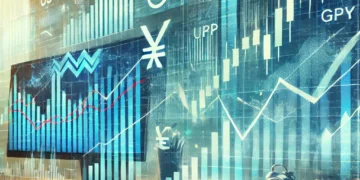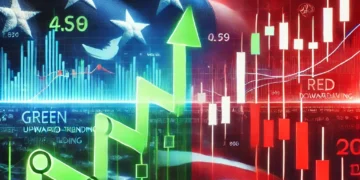The Fine Line Between Trading and Gambling: Unraveling the Similarities and Distinctions
Introduction
At first glance, trading and gambling appear to have many similarities: both involve risk, decision-making under uncertainty, and the potential for financial gain or loss. However, despite these superficial similarities, the two are fundamentally different in approach, methodology, and outcome. This detailed exploration will delve into the commonalities and disparities between trading and gambling, elucidating why trading, unlike gambling, is not just a game of chance but a strategic, skill-based activity. We will also examine the specific skills that are utilized in both trading and gambling, as well as those unique to trading, to provide a clearer understanding of why trading should not be equated with gambling.
Similarities Between Trading and Gambling
Both traders and gamblers engage in activities that require a strong appetite for risk and involve substantial stakes. The allure of quick returns can tempt individuals in both arenas. Here are some key similarities:
- Risk Management: Both traders and gamblers must manage their risk exposure to avoid catastrophic losses. Effective risk management involves knowing how much to risk on a given trade or bet, understanding the odds of success, and having strategies in place to mitigate losses.
- Probability and Analysis: Success in both fields requires an understanding of probabilities. Traders use statistical analysis to predict market movements, while gamblers may use similar mathematical strategies to estimate the odds of winning a game.
Distinctive Skills in Trading and Gambling
While both traders and gamblers share some skills, each also requires unique capabilities that set them apart.
Skills Shared in Both Trading and Gambling:
- Emotional Control: The ability to manage emotions is crucial in both trading and gambling. This involves maintaining discipline, handling losses without becoming despondent, and not becoming overly confident after a win.
- Decision Making Under Uncertainty: Both require making decisions with incomplete information. Success depends on making the best decision possible based on the available data.
Skills Unique to Trading:
- Technical Analysis: Traders often use technical analysis—a method of evaluating securities by analyzing statistics generated by market activity, such as past prices and volume. This skill involves using tools like charts and indicators to forecast future market movements based on historical patterns.
- Fundamental Analysis: Unlike gambling, trading can involve fundamental analysis, which assesses the intrinsic value of a stock, currency, or commodity based on external events and influences, financial statements, industry conditions, market competition, and the overall economy.
- Strategic Planning: Trading involves more than just the execution of trades; it requires a comprehensive strategy that includes entry and exit rules, trade size, and tactics for different market conditions.
Why Trading Is Not Gambling
Trading differs from gambling in that it involves more analysis, research, and an evidence-based approach. While gambling is largely based on chance and probability, trading utilizes economic indicators, company performance, and other analytical data to make informed decisions. This methodical approach reduces dependency on luck and introduces a systematic way to generate returns, which is more akin to investing than gambling.
Moreover, trading often involves a longer-term perspective. Unlike gambling, where each bet is an independent event, trading can build on previous outcomes to adjust future strategies.
Conclusion
In conclusion, while trading and gambling share some overlapping skills such as risk management and the ability to make decisions under uncertainty, they fundamentally diverge in their approach and methodology. Trading is not gambling; it is a disciplined form of investing that requires knowledge, analysis, and strategic execution. Traders who approach the markets with the seriousness and rigor of a businessperson, using both technical and fundamental analysis, elevate trading to a sophisticated financial strategy far removed from the simplicity of chance-based betting.
Embracing the analytical and strategic aspects of trading can transform it from a gamble to an informed financial decision-making process. Aspiring traders should focus on acquiring and honing the unique skills of trading to ensure their approach is based on insight rather than impulse, aligning more with investing than with gambling. This understanding not only enhances a trader’s effectiveness but also clarifies the often-misunderstood nature of what it means to trade in today’s financial markets.

























